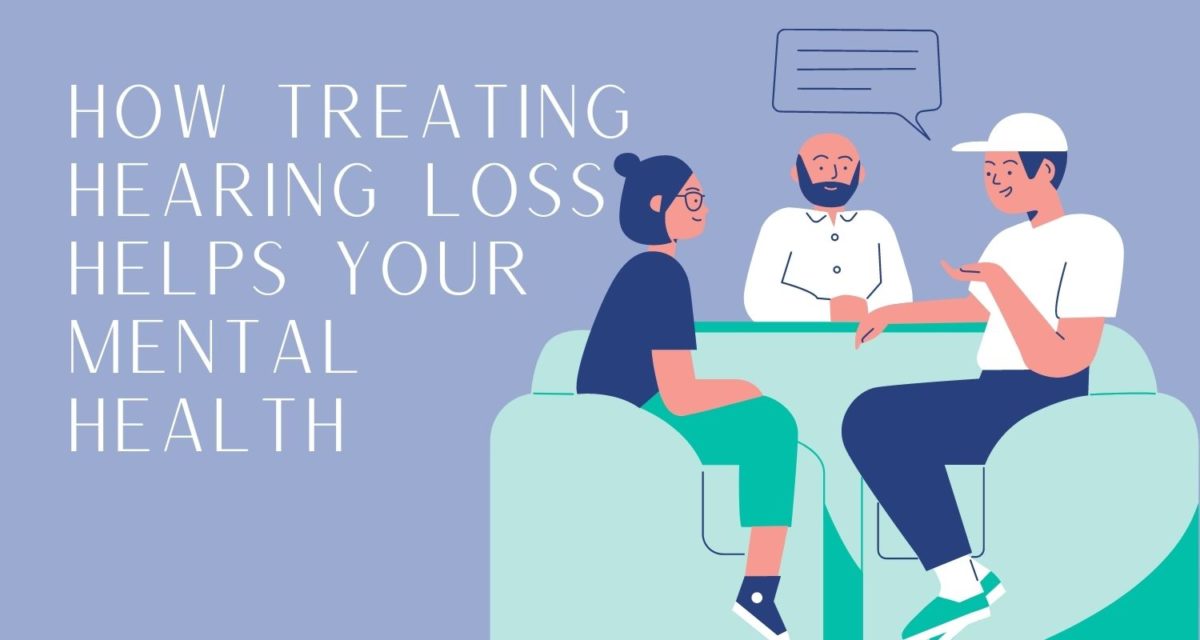- The Difference Between Generic and Custom Earplugs - April 16, 2025
- Choosing Between Renting or Buying Your Hearing Aids - April 6, 2025
- The Importance of Earwax - March 25, 2025
While hearing loss begins with the ears its effects are far-reaching. The body and mind support each other and when we struggle to hear our emotional health is impacted significantly. The ability to navigate conversations is when hearing loss is most noticed by others, however, because hearing loss is an “invisible” disability, it often goes unrealized. Instead, it can be misinterpreted by others as a person is not listening, not paying attention, or seems disinterested. This can cause lasting rifts in relationships on a personal and professional level. This can quickly make social situations that used to give us energy and help us feel part of the world become frustrating, isolating, and cause chronic depression. The effects hearing loss cause on our mental health affects us on many different levels.
An Impact on our Closest Relationships
Healthy and intimate interpersonal relationships are a large component of mental health. Friendships and partnerships can help you feel supported through happy and difficult times but can help prevent chronic depression and loneliness. The CDC recently reported that chronic loneliness can be a danger to our overall health as smoking 15 cigarettes daily or leading a sedentary lifestyle. When hearing loss starts to impede your ability to connect to friends and family members you’ve loved and cherished for years, it can be painful. Even worse it can create major barriers between significant others causing loneliness, even if you are right beside each other. Hearing allows us to connect and the loss of it can damage your most cherished relationships until it is addressed.
Hearing Loss in the Workplace
According to the Hearing Loss Association of America (HLAA), of the 15% of US workers who report some degree of hearing loss, around 60 percent are either in the workplace or an educational setting. For many of us, our jobs are not how we make money and support ourselves, but where we feel empowered in what we do and how we connect to others. When hearing loss goes unaddressed it is all too easy for performance at work to be affected. Typically, people with hearing loss are passed over for promotions, raises, and opportunities. The Better Hearing Institute reports that on average, a person with hearing loss makes 30,000 less than contemporaries with normal hearing annually. This can not only take a monetary toll on a person but become a blow to self-confidence. Those who have defined themselves by their work feel less empowered. This can contribute to chronic anxiety and depression which increase cortisol levels (the stress hormone) and have reverberating effects on our health including high blood pressure, heart disease, type 2 diabetes, and osteoporosis.
Hearing Loss and Cognition
Hearing loss not only affects our mental health, but these often transfer to affect our cognitive abilities. When you are speaking to someone with hearing loss you are simultaneously trying to fill in blank spaces in words and words in sentences. This requires greater cognitive functioning and often the brain will pull functioning away from other important resources to put towards hearing. It’s all too common for people with unaddressed hearing loss to choose to avoid social situations rather than struggle through exhausting ordeals. Social isolation in turn can turn to stimulation causing parts of the brain to atrophy. This is why many studies have made strong connections between untreated hearing loss and higher risks for dementia.
Addressing Hearing Loss
While most cases of hearing loss are irreversible this doesn’t mean there aren’t solutions and treatments. The most common one is hearing aids, which, based on a hearing examination can be programmed to amplify the specific sounds you struggle to hear. With a commitment to wearing your hearing aids every day, you can teach your brain to hear sounds again that you may not have been able to hear for years. With hearing aids, you can hear the people in your life that make you feel connected and excited about waking up and starting a new day. To find out more about how we can help you feel your best with improved hearing for years to come, schedule a hearing exam today!

